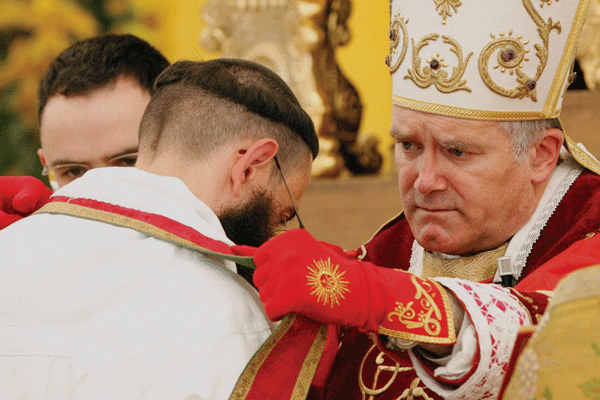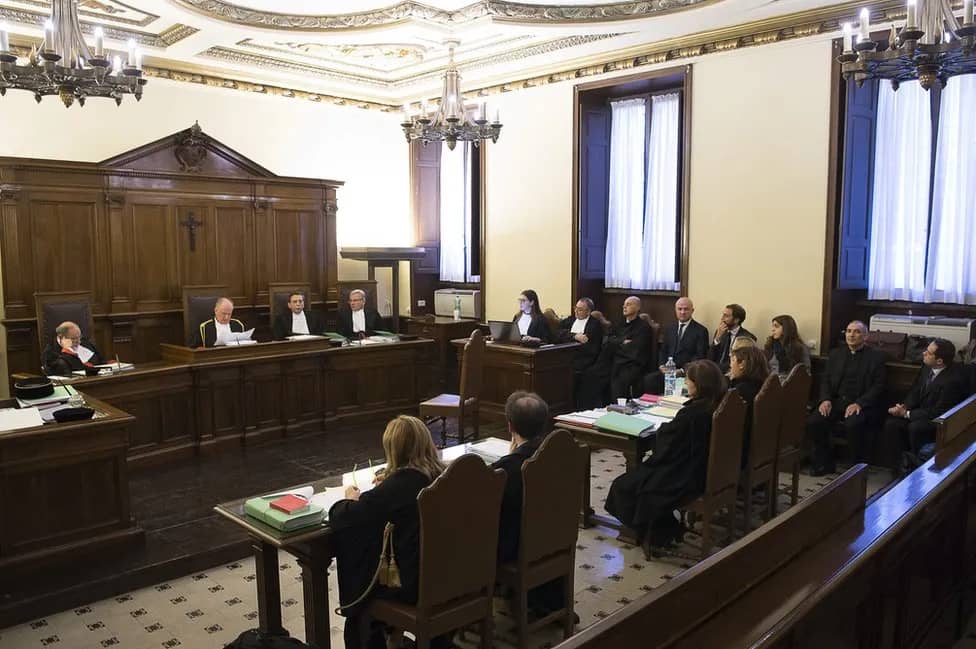ROME—For months there have been rumors about a possible normalization of the situation of a breakaway traditionalist Catholic group, known as the Society of Pius X, which heated up again after a meeting between Pope Francis and the head of the society taking place last month.
Although many observers have said the agreement between the Society and Rome is “imminent,” Bishop Bernard Fellay, leader of the priestly society, now warns the traditionalists are not going to change their positions to accommodate the Vatican.
One of the things presently being discussed is the society’s canonical status, and, according to a statement Francis made to the French newspaper La Croix, it would seem that the group could become a “personal prelature.”
That’s a relatively new category in Church law, and at the moment it’s only applied to Opus Dei.
In a nutshell, personal prelatures include a prelate and clergy who undertake specific pastoral activities in various regions or among different groups. They’re not defined by geographical terms, but by their mission, and lay people also can dedicate themselves to the work of a prelature.
Speaking to the National Catholic Register in an interview published on Wednesday, Fellay said that to him it’s “a given” that they will be granted canonical recognition, adding that it’s “a right” for the group to get it.
“But we’re not going to compromise, to hurt the discipline of the Church to get that,” Fellay said. “If we’re put in a choice between keeping the faith or making their compromise, it’s clear: I’m not going to compromise.”
The society, also known as the Lefebvrists for their founder, the late French Archbishop Marcel Lefebvre, was born after the Second Vatican Council, which ended in 1965.
Lefebvrists generally have reservations about several of the teachings of the council, particularly in regard to ecumenism, interreligious dialogue, freedom of religion, and some aspects of the liturgical reform, including the use of the older Latin Mass.
Another contentious issue between Rome and the Society of Pius X is the ordination of bishops. In 1988, Lefebvre ordained four new bishops against the express wish of Pope John Paul II, thereby incurring automatic excommunications.
It was this ordination that provoked the rupture between the Vatican and the Lefebvrists, something both sides have been trying to mend, so far unsuccessfully, since the year 2000.
In the May 13 interview, journalist Edward Pentin asked Fellay about how bishops will be appointed going forward, to which he answered that there’s already an agreement: The Vatican will have the final word, but will pick from a list of three names, known as a terna, presented by the society.
Fellay said that the reason why the two sides seem to be drawing closer now is because “Rome is granting what we see as a necessity, and what they [Rome] also start to see as a necessity, given the situation of the Church.”
What is that situation, according to Fellay?
“Catastrophic,” he said. “Finally now, in this situation, which is increasing, you have people who start to speak, who start to consider our position as no longer so bad, because it looked bad before,” he said.
Fellay also said that despite the difficulties, he’s persuaded God hasn’t left his Church. Paradoxically, he said, with regard to the society “you see this movement in our favor inside of Rome, and so yes, I see the hand of God.”
“We have to distinguish between the position of the pope, which is one thing, and then the position of the CDF,” Fellay said, referring to the Congregation for the Doctrine of the Faith, the Vatican’s doctrinal watchdog agency, led by German Cardinal Gerhard Müller.
According to the bishop, Francis and the CDF don’t have the same approach, but they share the conclusion: “Let’s finish the problem by giving recognition to the society.”
Fellay also spoke about Francis, whom he described as “totally atypical” and as a man hard to pin down in the “usual categories.”
“I would say one of the major problems we have is that the normal way of judging someone is by his actions and conclude, ‘He’s acting like this because he thinks like that.’ So [we] go back to a doctrine or sometimes an ideology,” Fellay said.
“But if you try to do so with the present pope, you’re totally puzzled, because one day he does something and the next day he does or says almost the contrary,” he added.
Fellay said it would seem that for Francis, the most important thing is to “see everybody saved. To see everybody have access to God.”
According to the French-Swiss prelate, the Argentine pontiff is willing to put himself in a “risky situation” to try to get to other people [into the Church], and this, he believes, is what Francis is ultimately doing with the traditionalist group.
“For a modernist, he certainly has untied the so called ‘secure rope’ to get to us. And he’s said to us that he’s had some problems with people in the Church because of this approach. But he’s using the same approach for everyone who’s on the side,” Fellay said.
Regarding Francis’ repeated condemnations of “doctors of the law” and “fundamentalists,” terms some associated with the sort of traditionalists found inside the Society of St. Pius X, Fellay said he wasn’t sure they’re directed to him and his group.
When he has asked in Rome whom the pope has in mind, he said, the answer he most often receives is, “conservative Americans.”
“Certainly he doesn’t agree with us on these points on the Council which we are attacking,” Fellay said. “Definitely he doesn’t. But for him, the doctrine is not so important — it is man, the people, who are important — and there we have given enough proof that we are Catholics.”
“He sees that we are genuine,” Fellay said. “He certainly sees things he would disagree with in us, things he would like to see us change, but for him, that’s not what’s important.”
Ultimately, “what’s important is to love Jesus, and that’s it,” he said.














